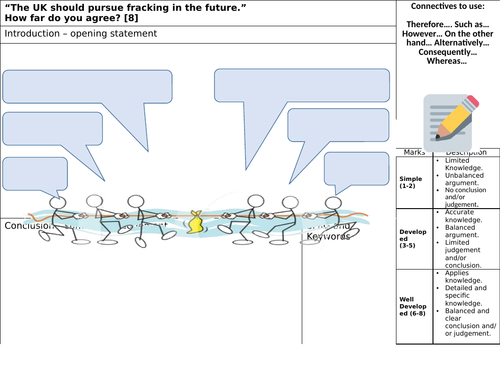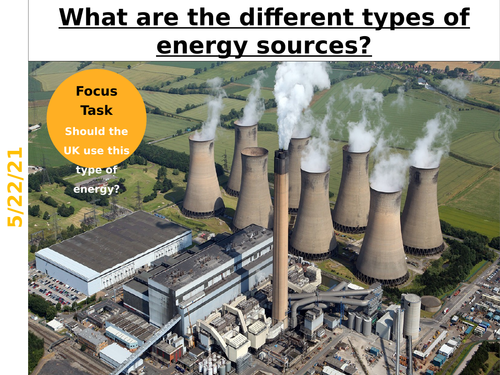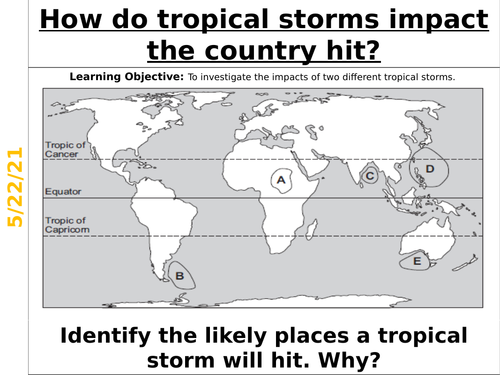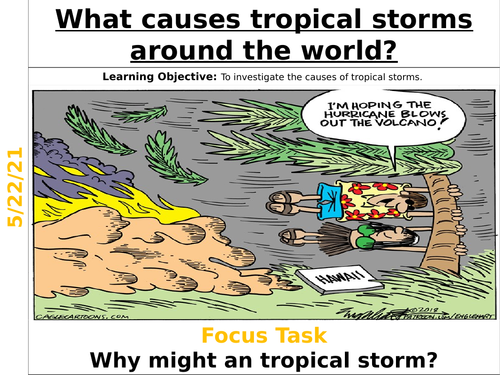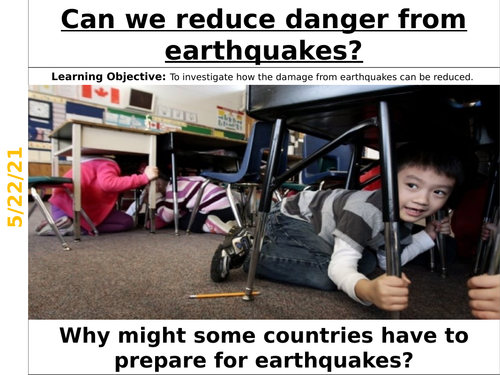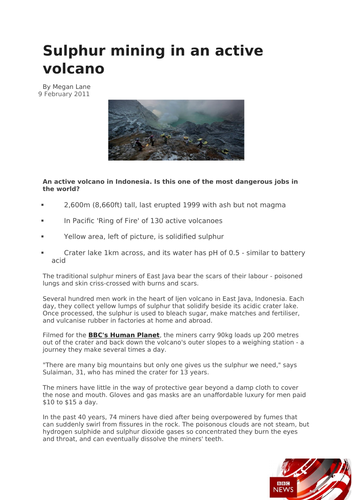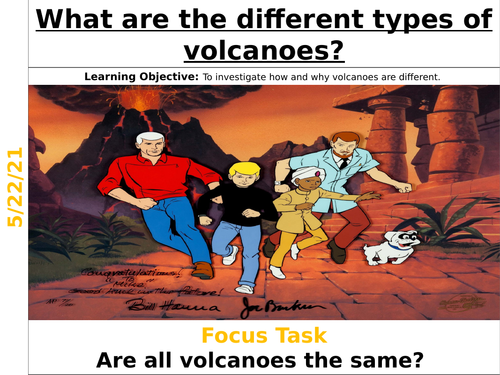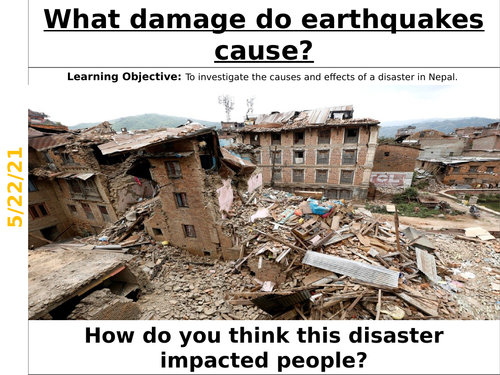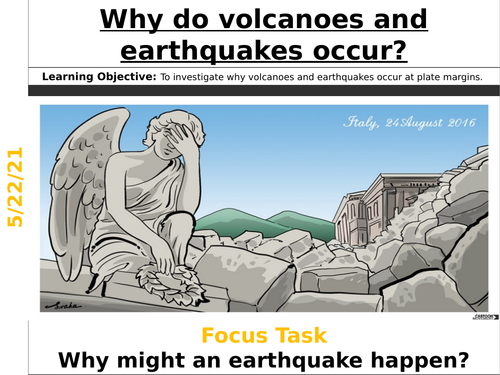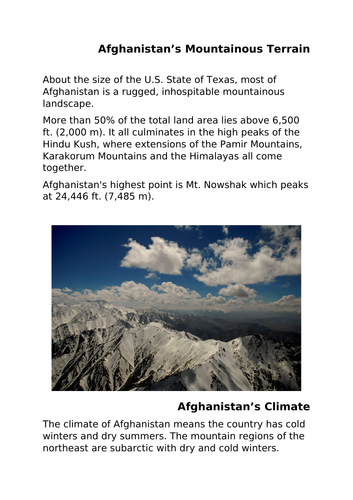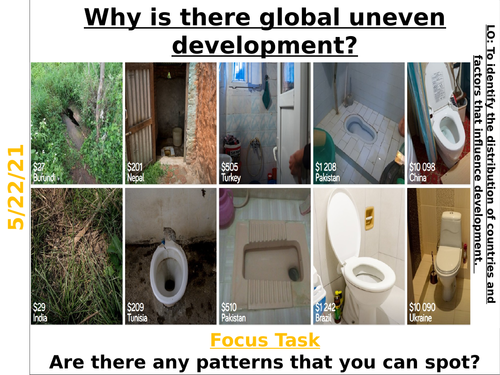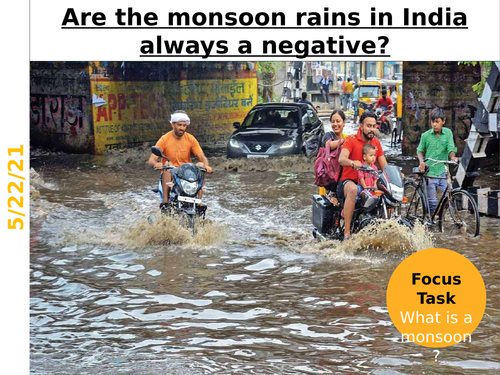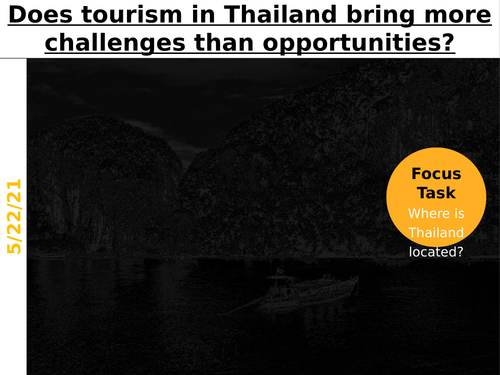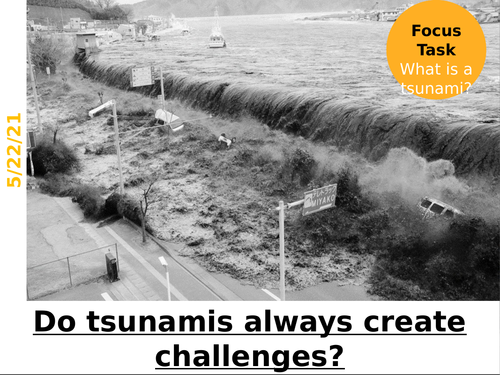38Uploads
14k+Views
29k+Downloads
All resources
Sale

Should the UK pursue fracking in the future?
This is a fully resourced lesson focusing upon whether the UK should pursue the use of fracking in the future. The lesson includes describing how the process of fracking works, the impacts of fracking, a GCSE style question plan and thoughts on the fracking ban in the UK.
Sale

Using our Natural Environment KS3 SOL
This is a fully resourced 10 lesson scheme of learning focusing around our natural environment. The lessons included are:
Lesson 1: What are the different type of energy sources?
Lesson 2-3: Is wind power a sustainable energy source?
Lesson 4: Is fracking a sustainable energy source?
Lesson 5: How can the use of oil damage the environment?
Lesson 6-7: Is plastic waste damaging our environment?
Lesson 8: Why is the distribution of farming in the UK uneven?
Lesson 9: How has farming changed in recent years?
Lesson 10: Should organic farming be favoured over intensive farming?
Sale

How do tropical storms impact the country hit?
This is a fully resourced lesson based upon the impacts of tropical storms on the countries that they hit. The lesson includes comparing the impacts of Hurricane Katrina of 2005 and Cyclone Nargis of 2008. Categorising of impacts are organised through ‘pizza toppings’.
Sale

What causes tropical storms around the world?
This is a fully resourced lesson based upon tropical storms and their causes. The lesson includes:
• Pupils firstly need to know that tropical storms can also be known as hurricanes, cyclones and typhoons. The names change depending upon where in the world they occur.
• Pupils describe the distribution of tropical storms using a map.
• Pupils need to be aware of the conditions needed for tropical storms to occur (warm oceans over 27 degrees Celsius)
• Pupils then need to sequence the steps to explain the formation of a tropical storm.
Sale

Can we reduce danger from earthquakes?
This is a fully resourced lesson focusing upon whether we can reduce the damage caused by earthquakes. Pupils will look at earthquake grab bags and assessing their content, earthquake proof buildings and prediction/preparation methods.
Sale

Should people live in areas of volcanic activity?
This is a fully resourced lesson based upon a key question of whether people should live in areas of volcanic activity. Pupils will assess and investigate a range of sources provided to be able to make a judgement on the key question of the lesson.
Sale

What are the different types of volcanoes?
This is a fully resourced lesson focusing upon the types of volcanoes around the world. The lesson includes:
• Describing the distribution of global volcanic activity (specifically make links to Pacific Ring of Fire)
• Showing pupils images of a shield and composite volcano and ask them whether all volcanoes are the same.
• Pupils need to be able to identify and explain similarities and differences between the volcanoes. Shape, type of eruption and consistency of lava are the main differences.
Sale

What damage do earthquakes cause?
This is a fully resourced lesson focusing upon the cause and impacts of the Nepal earthquake in 2005.
Sale

Why do volcanoes and earthquakes occur?
This is a fully resourced KS3 aimed lesson focusing upon why volcanoes and earhquakes occur. The lesson includes:
• Introducing pupils to a plate margin distribution map and discuss the fact that tectonic activity occurs at plate margins.
• Showing pupils a map of the distribution of tectonic activity and the distribution of plate margins and ask them to make links.
• Pupils need to be aware of the three plate margins: Destructive, Constructive and Conservative margins and need to know how volcanoes and earthquakes are created here.
• Pupils should be able to draw annotated diagrams and/or create a sequence of steps to explain the formation of hazards at all three margins.
Sale

What factors affect the development of a country?
This fully resourced lesson focuses upon factors that affect the development of a country. The lesson includes:
Case Study of an LIDC: Afghanistan
Investigating a range of factors that have held back the development of Afghanistan and as a result caused it to be an LIDC.
Factors to consider:
Mountainous terrain
Climate
Landlocked
Status of women perceived by the Taliban
Civil War
Sale

Why is there global uneven development?
This fully resourced lesson investigates reasons why there is uneven development around the world. The lesson includes:
• Describing the distribution/location of the three categories of country from a world map
• Considering the social and economic indicators used to measure development such as life expectancy and GNI
• Categorising the factors that can hinder or promote development into physical and human such as climate and colonisation.
Sale

Should tropical rainforests be protected?
This fully resourced lesson focuses upon whether tropical rainforests should be protected whilst also exploring additional information about tropical rainforests. The lesson includes:
• Distribution/location of tropical rainforests
• Use sources to discover why rainforests are of value/important to both people and the planet and how human activity is threatening them
• Consider the methods used to manage the threats /conserve the rainforests.
Sale

Are the monsoon rains in India always a negative?
This is a fully resourced lesson based upon the monsoon rains in India. The lesson includes the following:
• What are monsoon rains?
• Classifying the effects of monsoon rains into positive and negative as well as social, economic and environmental.
• Pupils need to consider whether they only create challenges and answer the key question.
Sale

Does tourism in Thailand bring more challenges than opportunities?
This is a fully resourced lesson based upon the impacts of tourism in Thailand. The lesson includes the following:
• Graph interpretation – pupils need to be able to describe key trends/anomalies on a graph
• Pupils will use sources to classify benefits and challenges of tourism into social, economic and environmental effects.
• Pupils make a judgement about whether tourism creates more challenges or opportunities. The judgement needs to be supported with evidence.
Sale

Do tsunamis always create challenges?
This is a fully resourced lesson focused upon whether tsuanmis create challenges for countries. The lesson includes:
• Defining a tsunami
• Investigaing the cause of a tsunami
Case studies: Japanese Tsunami 2011 and Asian (Boxing Day) Tsunami 2004
• Comparing the social, economic and environmental effects of each tsunami
Sale

Where is Asia?
Where is Asia and what countries belong to Asia?
A fully resourced lesson based upon locating Asia and the countries which belong to it. The lesson also focuses upon human and physical geography with classifying activities included.
Sale

KS3 Africa Scheme of Learning
Complete scheme of learning (12 lessons) aimed at KS3 focusing upon the continent of Africa. All lessons are fully resourced.
This scheme of work includes:
Use of Geographical skills to show how we will link to Africa through holidays.
Investigating the impacts of tourism in one country in Africa (Kenya) using a case study and suggest how the environment can be protected against mass tourism through eco-tourism.
Developing our enquiry skills by looking at where our food comes from.
Investigating the causes and effects of the food crisis in Africa and speculate on the possible long term impacts on the continent
Investigating how the conflict in various countries are causing problems socially and economically.
Investigating why people are moving from rural areas to urban areas in LIDCs and suggest the impact that this might have on the wider community.
Investigate the problems faced by the people living in squatter settlements
Investigating the possible solutions to the key problems in squatter settlements by using a case study to support your answer.
Sale

KS3 Asia Scheme of Learning
This is a full scheme of learning aimed at KS3 focusing upon the continent of Asia. All lessons are fully resourced and are ready to print and use immediately!
This scheme of work includes:
Lesson 1: Where is Asia and what countries belong to Asia?
Lesson 2: Do tsunamis always create the same level of challenges for the countries involved?
Lesson 3: Does tourism create more challenges or opportunities for the host country?
Lesson 4: Do the monsoon rains in India only cause challenges for the country?
Lesson 5: Should tropical rainforests be protected?
Lesson 6 Why is there global uneven development?
Lesson 7: What factors contribute to a country’s level of development?
Lesson 8: What challenges does rapid urban growth create?
Lesson 9: What are the advantages and disadvantages of building a dam?

